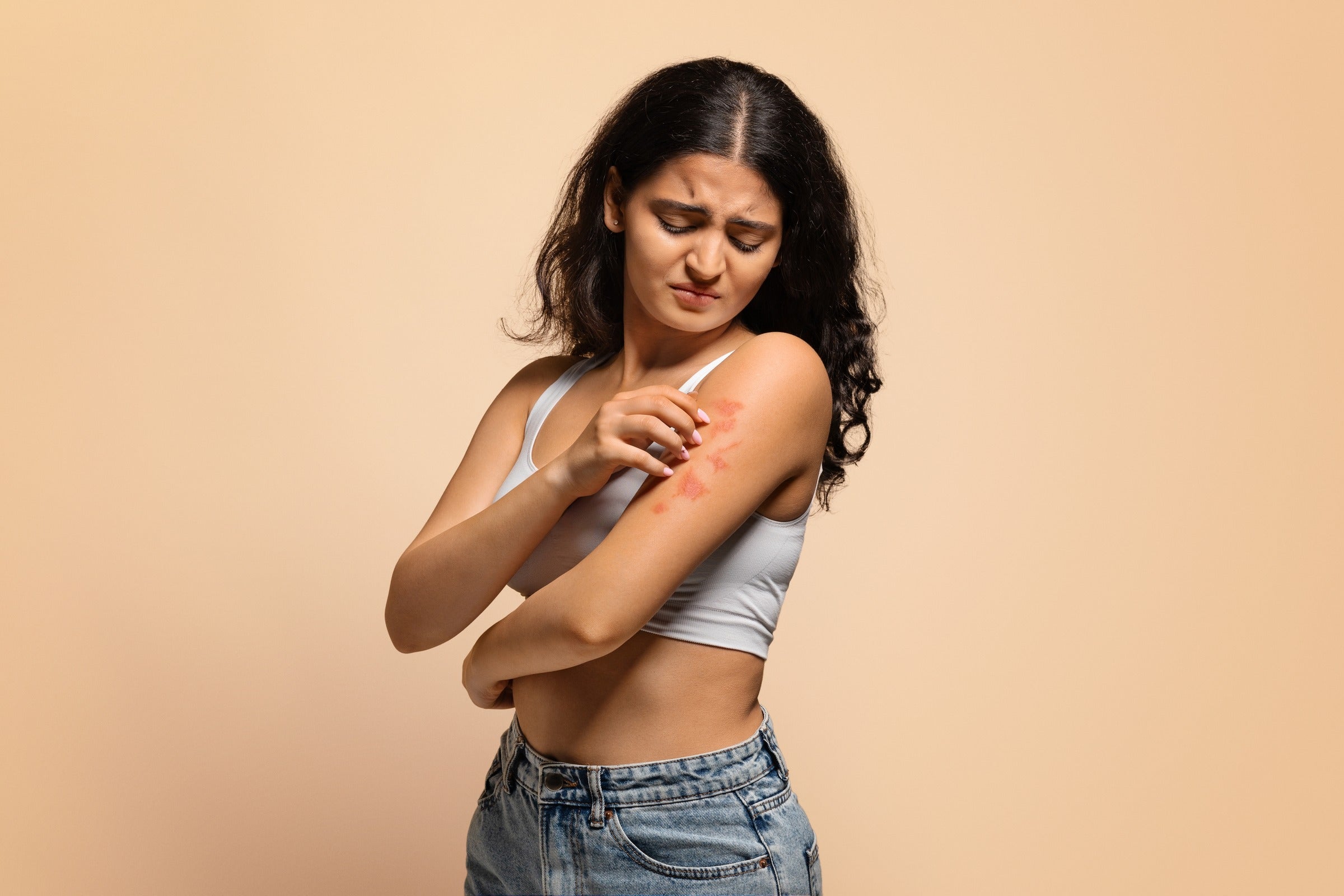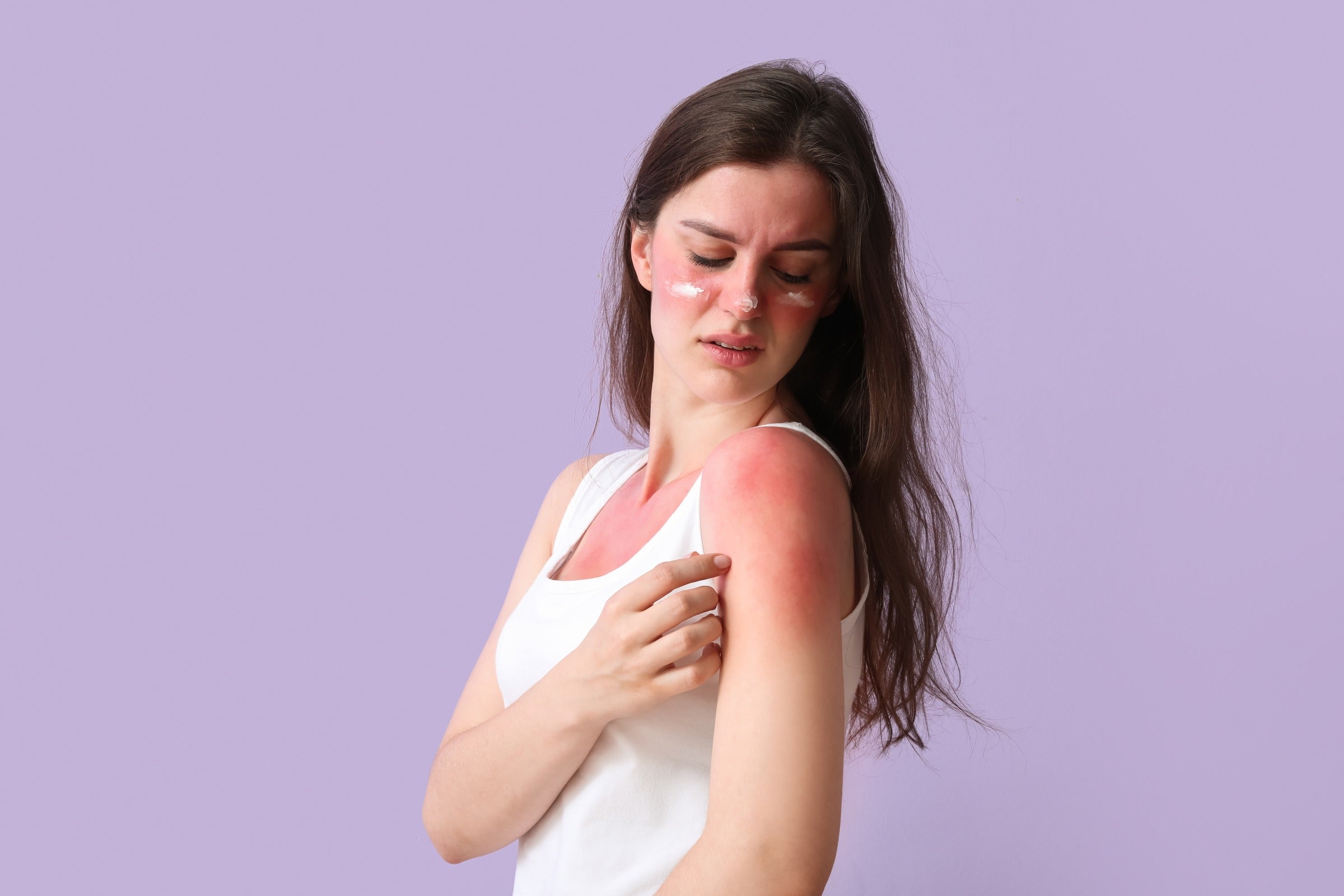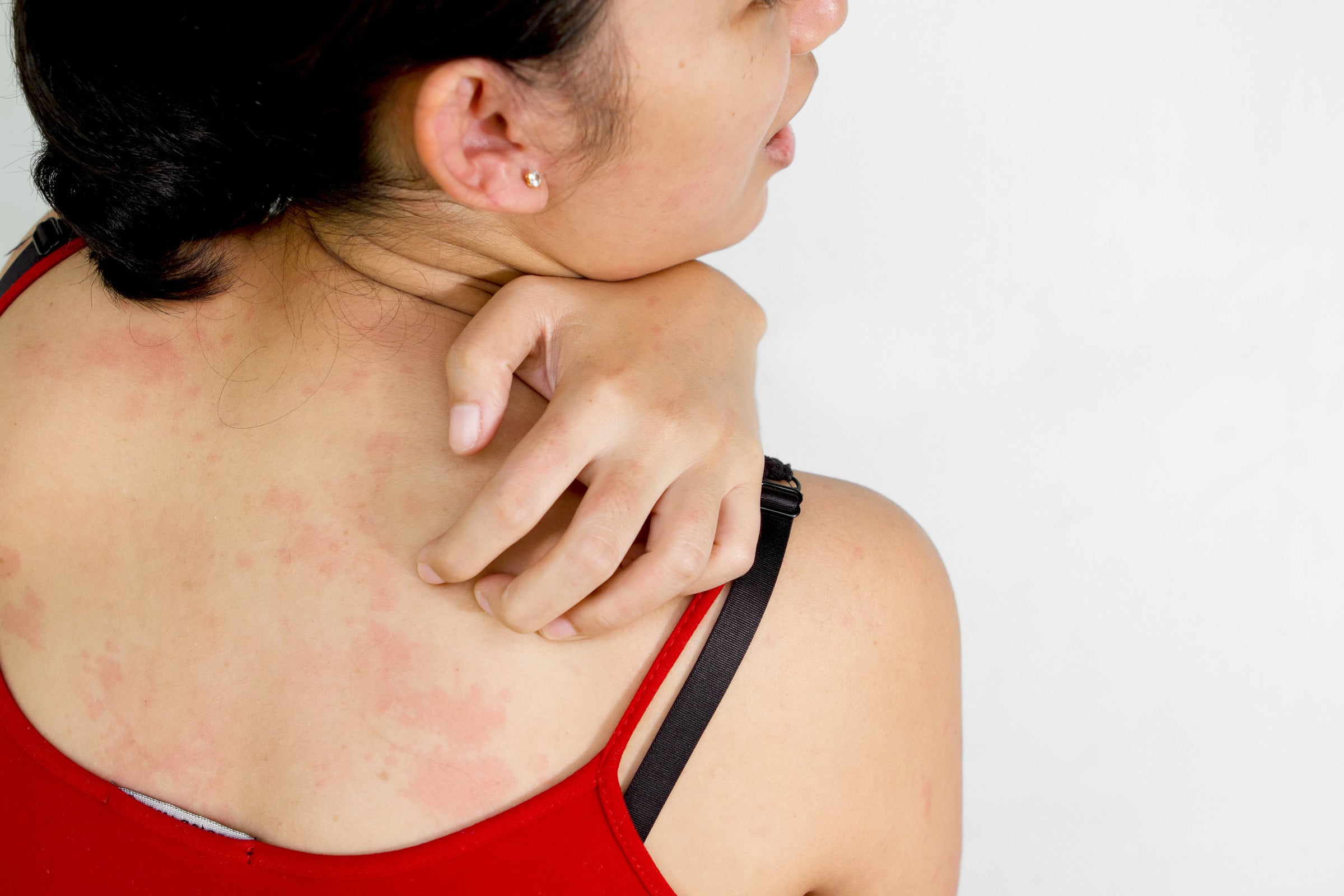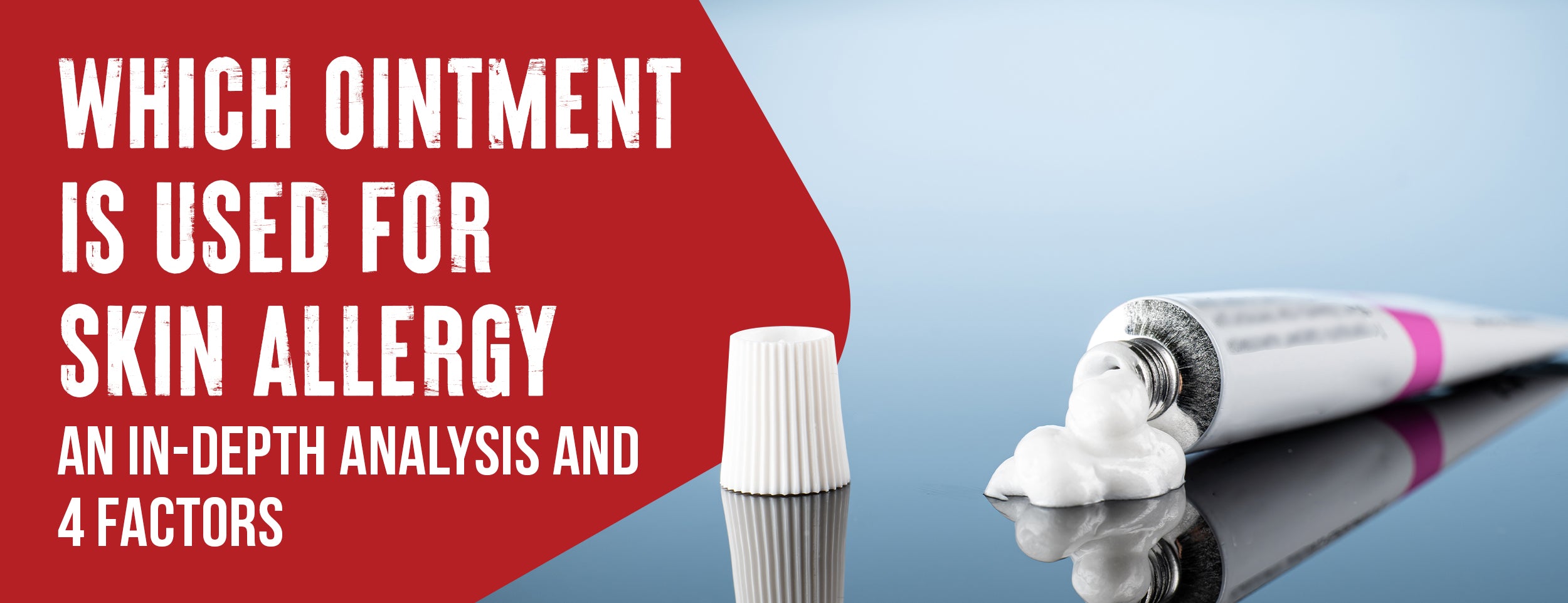Red, burning patches of skin, known as erythema, are a highly prevalent symptom with many possible causes. This reaction can be caused by sunburn, irritant contact, and medication. The diagnosis and treatment of skin redness are usually straightforward.
Yes, allergies can cause a burning skin sensation. A hypersensitive immune system reacts to a harmless substance and triggers an allergic reaction, leading to symptoms like rash, itching, redness, and burning sensation on the skin. This discomfort is a typical result of allergic reactions.
In this blog post, we'll delve into what triggers these fiery sensations, why some body areas are more prone to them, when to seek help, treatment options, and preventive measures to avoid skin combustion.
Can Allergies Cause Burning Skin Sensation: 7 Reasons

A burning sensation on the skin is a common symptom experienced by many people. It can be troubling, especially if the cause is not clear. Various factors can contribute to this sensation. We'll look at some of the reasons for this discomfort.
Allergens
Allergens are tricky. They're everyday substances that can cause your skin to feel like it's on fire. You might feel a burning sensation, itchiness, and redness when they touch your skin. Common allergens include:
- Pollen.
- Dust mites.
- Mold spores.
- Certain foods.
- Pet hair.
Contact Dermatitis
Contact dermatitis happens when your skin doesn't like something it touches. It could be soap, jewelry, or a poison ivy plant. Your skin might turn red, start itching, and even burn. Common triggers can be:
- Soaps and shampoos.
- Cosmetics.
- Jewelry, especially if it's made of nickel.
- Certain plants.
Sunburn
Too much sun can lead to sunburn, making your skin feel as hot as a summer's day. It's not just about the redness and peeling. Your skin might also feel burning. To protect yourself:
- SPF 30 or higher is recommended for sun protection.
- Wear protective clothing.
- Stay in the shade during the hottest part of the day.

Insect Bites and Stings
Insects like bees, wasps, spiders, and mosquitoes can cause more than an itch. Their bites or stings can make your skin burn. If this happens, try to:
- Apply a cold pack.
- Use creams or ointments like () available at drugstores.
- Avoid scratching the area.
Dry Skin
The skin can feel tight, itchy, and even burn when dry. This is especially true in the winter. To keep your skin happy:
- Use moisturizer every day.
- Keep your showers short and not too hot.
- Drink plenty of water.
Anxiety and Stress
Your emotions can affect your skin. Stress and anxiety can cause skin problems, including a burning sensation. To manage stress, try to:
- Exercise regularly.
- Practice mindfulness or meditation.
- Get enough sleep.
Cellulitis
Cellulitis is an infection that can make your skin feel like it's on fire. It's essential to treat it quickly to stop it from spreading. If you think you might have cellulitis:
- See a doctor right away.
- Take any antibiotics as directed.
- Rest and elevate the area if possible.
Understanding what can cause a burning sensation in your skin can help you determine how to treat it. Talk to a healthcare professional if you need clarification.
Allergies and Burning Skin: 3 Location

Burning sensations can occur in different parts of our bodies. Understanding where they're happening can help determine what might be causing them. Let's dive into some common locations and their potential culprits.
Urinary Tract
Urinary tract issues can turn a simple trip to the bathroom into a nightmare. From urinary tract infections (UTIs) to prostatitis and urethral problems, there are many reasons why peeing can feel like a dragon's breath. Common causes include:
- UTIs.
- Prostatitis.
- Urethral stricture.
- Kidney stones.
Skin
Our skin is our body's first line of defense, but it can also react strongly to certain irritants. From plants like nettles and poison ivy to the sun's harsh rays, various factors can cause our skin to burn. Watch out for:
- Contact with certain plants.
- Sunburn.
- Allergic reactions to substances like nickel or certain cosmetics.
- Insect bites and stings.

Hands and Feet
Our hands and feet are often exposed to various elements that can cause a burning sensation. This can be due to nerve damage, allergies, or other factors. Common causes include:
- Carpal tunnel syndrome.
- Peripheral neuropathy.
- Allergic reactions.
- Athlete's foot or hand, foot, and mouth disease.
When to Seek Help: The Red Flags
Your skin may burn, which may indicate a more severe problem. It's important to know when you should seek medical help. Discuss some red flags indicating it's time to call the doctor.
Fever
When a burning sensation is accompanied by fever, it's not something you should ignore. This could indicate an infection or other serious health issue. If you notice any of these symptoms along with a burning skin sensation, it's time to get medical help:
- High body temperature.
- Chills or shivering.
- Sweating.
- Headache.
- Muscle aches.
Swelling and Pain
Swelling, pain, and burning sensations could mean your skin is reacting to something harmful. It's crucial to listen to these signs and act quickly. Seek immediate medical attention if you experience:
- Severe swelling.
- Intense pain.
- Redness and warmth over the swollen area.
- Difficulty moving the affected area.
Remember, your health is essential. If you're experiencing a persistent burning sensation, especially with other symptoms, don't hesitate to seek professional help. It's always better to be safe and get the proper treatment immediately.
Burning Skin Sensation: Treatments

The best way to deal with skin burning is to know what treatment options are available. There are several ways to relieve burn discomfort, from medications to simple home remedies. Here are a few solutions we can explore.
Antibiotics
Antibiotics can be a game-changer if your burning skin sensation is due to an infection like cellulitis or a urinary tract infection (UTI). They help fight off the harmful bacteria causing the problem. When prescribed antibiotics:
- Always take them as directed by your doctor.
- Take doses.
- Don't stop taking the prescription even if you are feeling better.
Cooling Measures
Sometimes, all your skin needs is a little soothing. If your skin is burning due to sunburn, an allergic reaction, or a similar issue, cooling measures can provide relief. Consider:
- Aloe vera gel or soothing cream can be applied.
- Taking cool showers or baths.
- Using a cold compress on the affected area.
Allergies and Burning Skin: Prevention
Prevention is better than cure. By protecting your skin, you can reduce the likelihood of experiencing a burning sensation. Here's how:
- Avoid known allergens whenever possible.
- Wear sunscreen and protective clothing when outside.
- Keep your skin moisturized, especially in dry weather.

While these treatments and preventive measures can be helpful, they don't replace medical advice. You should seek medical attention if you experience persistent or severe burning sensations. You can receive accurate diagnosis and treatment options from them.
Conclusion
Our journey through the landscape of burning skin sensations has been enlightening and fascinating. We've unmasked allergens, confronted irritants, and even braved the sizzle of UV rays. We've learned how tiny insects can wreak havoc and why our emotional state can set our nerves on fire.
We've also discovered that the location of the burn can tell us a lot about its cause and that recognizing the red flags can save us a lot of trouble. From antibiotics to soothing creams, we've looked at ways to douse the flames and protect our skin in the future.
Our bodies are complex, often mysterious systems, as shown by these fiery tales of their skin. By understanding these mysteries, we can better manage uncomfortable sensations and better understand our body's incredible machinery. The next time you feel like your skin is on fire, remember: it's not a horror story but a fascinating story of biology, environment, and emotions.







![The Most Common Food Allergies That Cause Itchy Skin [6 Common Symptoms]](http://drnumb.ca/cdn/shop/articles/Can_Food_Allergies_Cause_Itchy_Skin__17_Listed_6_Symptoms_Common.jpg?v=1714999986)


